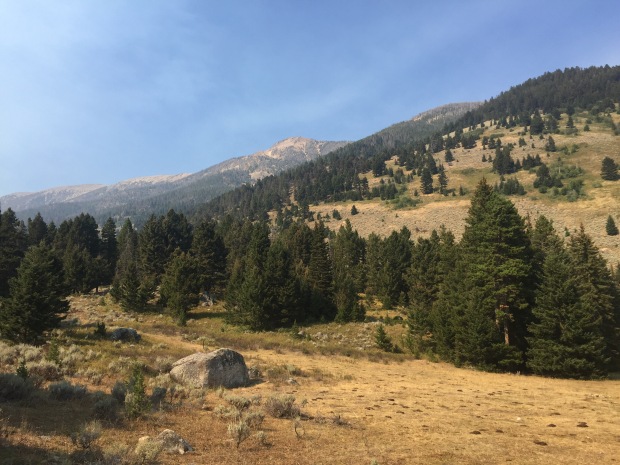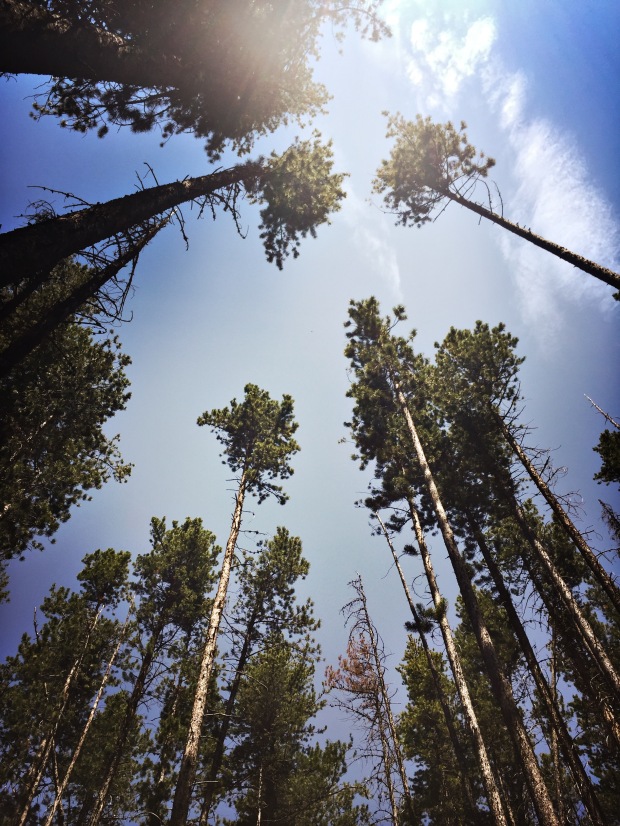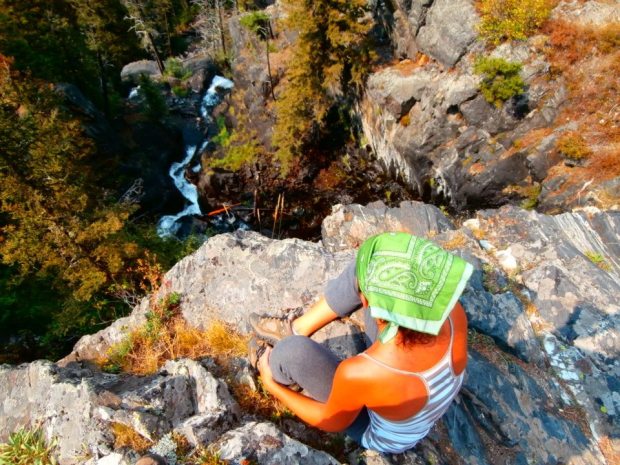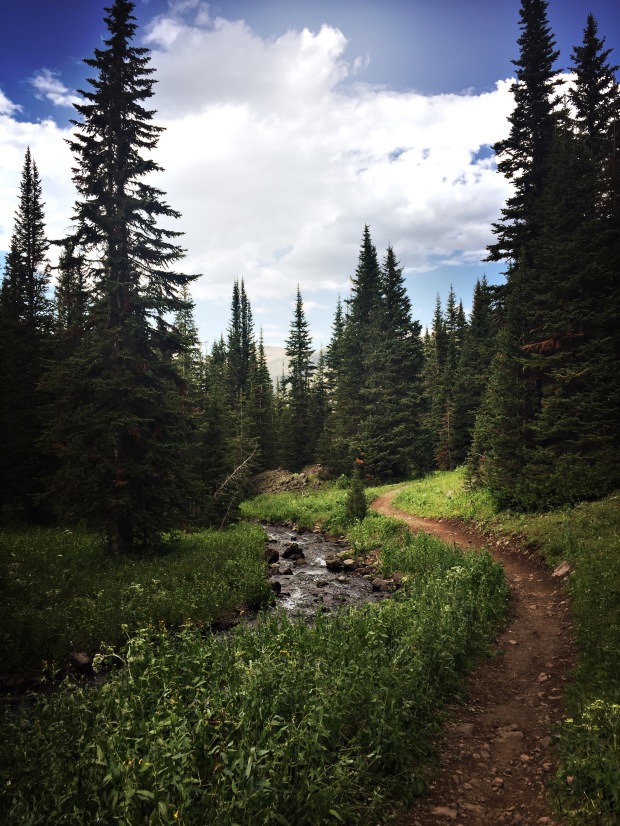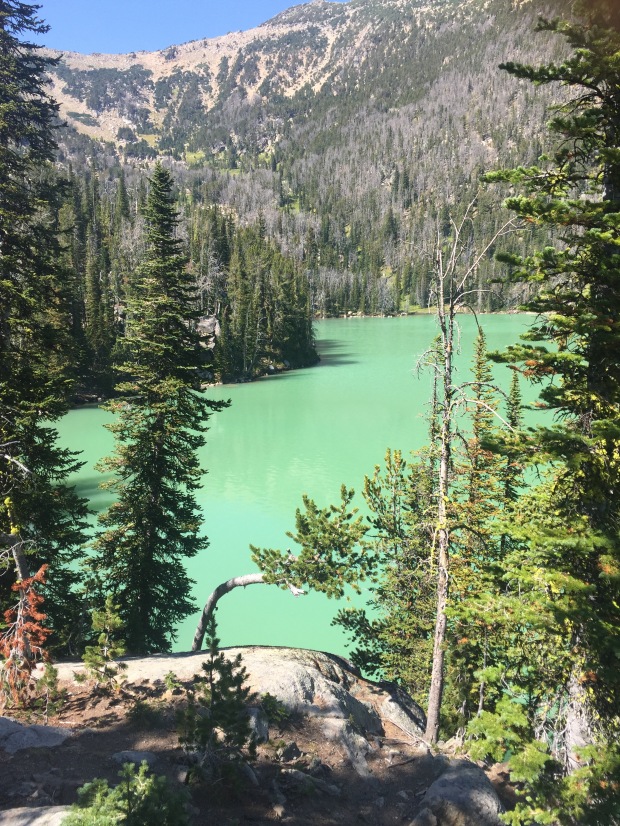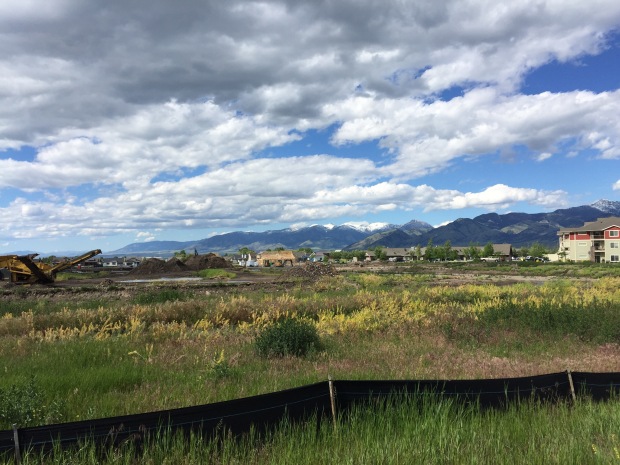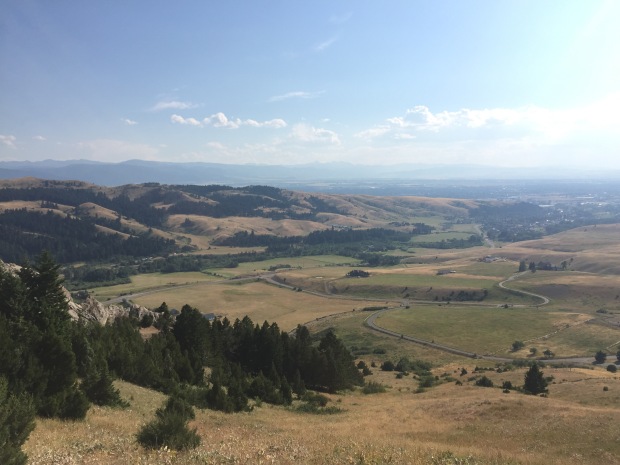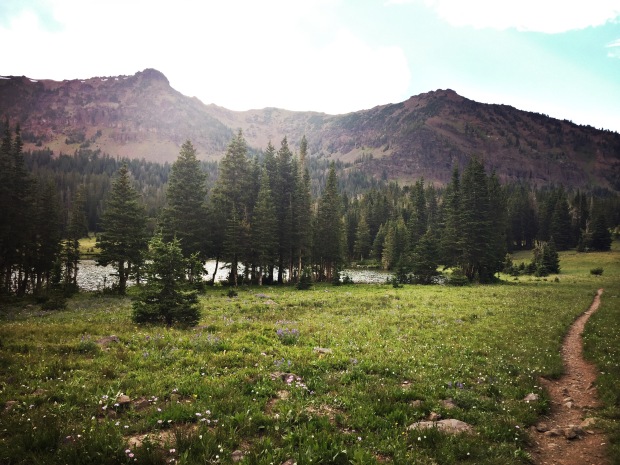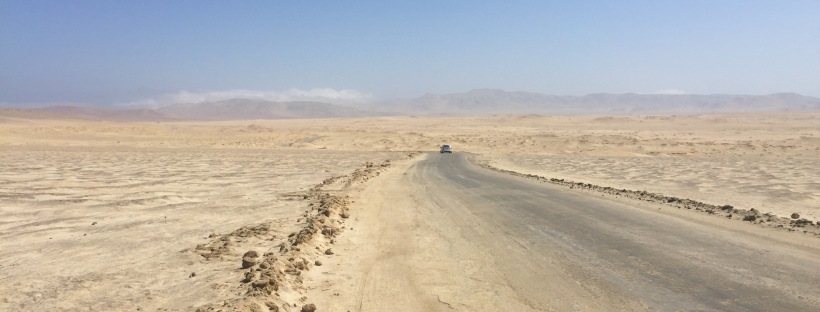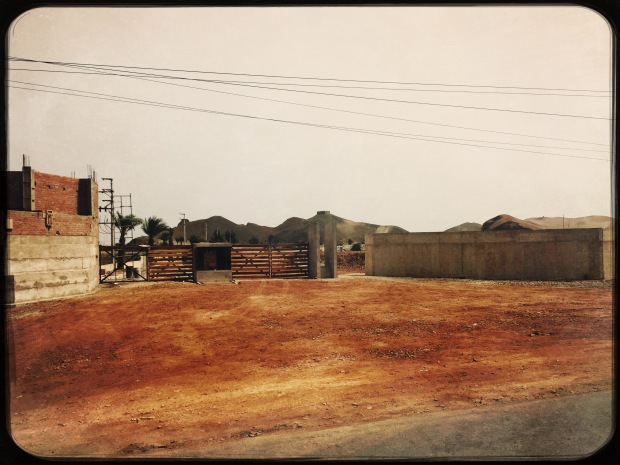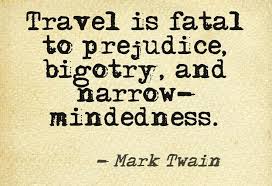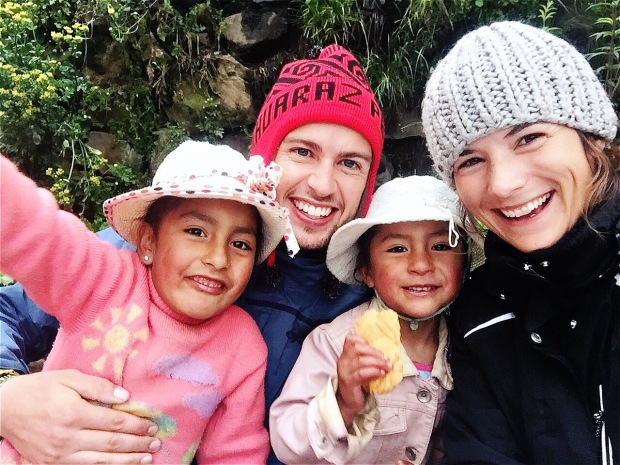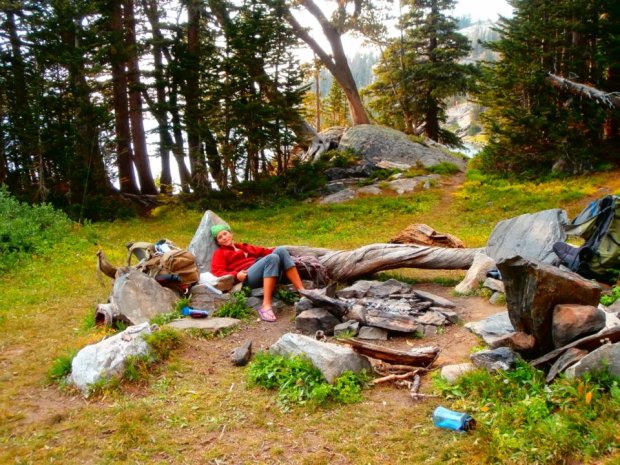Note: This was a post that I started writing when I came home from my trip to Tanzania but never finished. I was inspired to do so when a recent trip out to the center of Shanghai got me thinking about the time I spent in Africa.
The last leg of this Tanzania trip finds us in the winding through the beautiful Usambara mountains of northern Tanzania, up to the tippy top and back down again. As we leave the main highway and begin our ascent, I am reminded of so many places that I have been before. I am naming this place “Tanzanian Tuscany”- only it’s not wine they are growing on these green terraces framed by red earth. Just about everything else though.
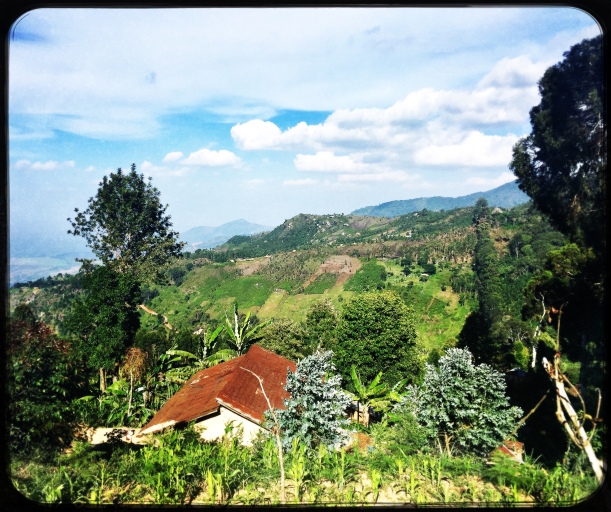
We are far off the main tourist track, and for that I am grateful. It would be a shame to come and go from Tanzania having only done Zanzibar, Safari, Kilimanjaro and the conventional tourism route. Since the friend I am visiting is teaching in Arusha at an International school, and my visit happened to coincide with their yearly field trip to this area, I was fortunate enough to get join them. Having no idea what to expect, I was literally just along for the ride. This no-expectation thing has been working out for me quite well here in Tanzania, as every good experience has been heightened by that element of surprise. This trip was no different.
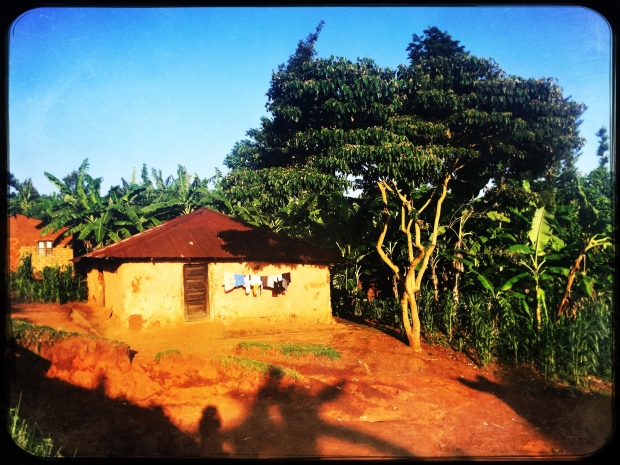
Tanzanian Tuscany
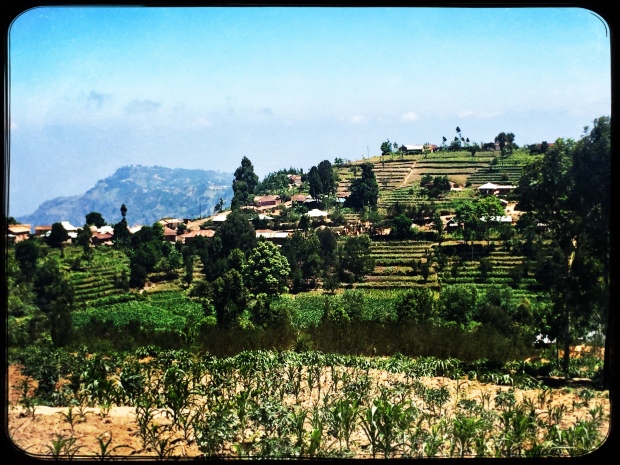
While I think the school chooses this region for it’s rich biodiversity and opportunities for outdoor education, it was the service aspect of the trip that impacted all of us the most.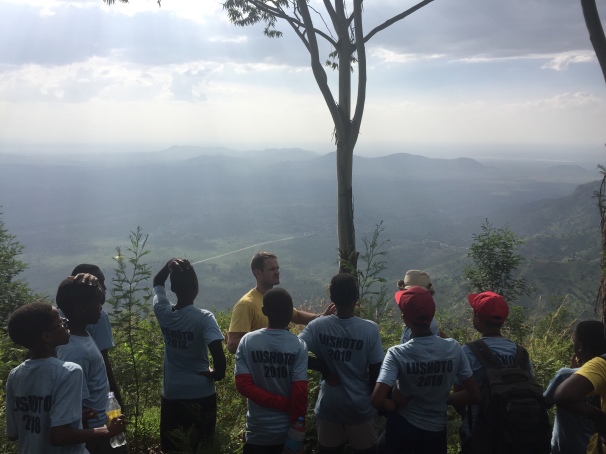
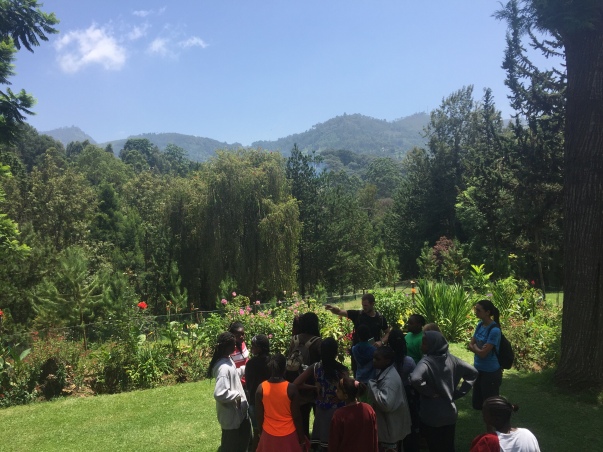
Class field trip to the Usambara Mountains
The first thing that really struck me about Africa- besides the treacherous condition of the roads- were the sheer numbers of children everywhere. They lined the roads skipping along on their way to and from school as we drove around, Zanzibar, Arusha… everywhere. So many children.
But back here in the mountains was a bit different. Here I see babies carrying other babies. They weren’t coming or going from school. Big groups of small children peeked out at us or came barreling down the hillsides to gawk at us, this odd-looking group of outsiders- a sight that many of them have never seen before. There aren’t many adults around, and one wonders who is taking care of them? It appears that primarily, they are taking care of each other.
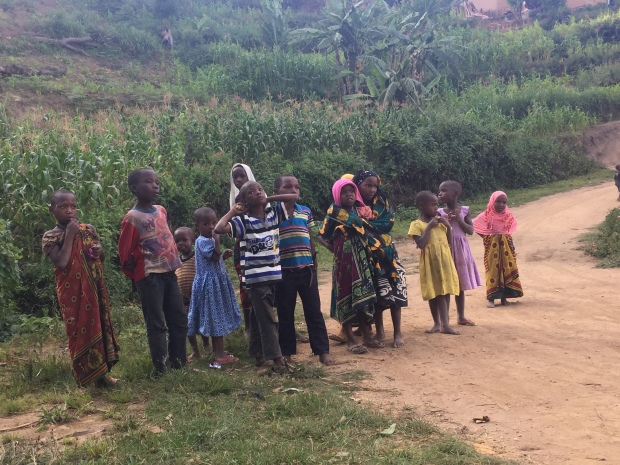
Children gathered along the roads to watch us as we road by the village on our school field trip
The picturesque hostel that we camped at, Mambo Viewpoint, is part of an NGO that is working hard to make change in this area. One day as I sat writing about all of these questions dancing around in my mind, the secretary of the NGO, Hoza, approached me, as if he knew I needed answers, and started laying them out for me one at a time.
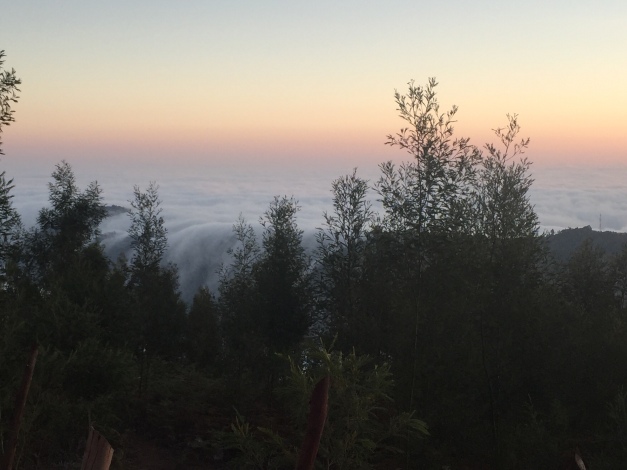
High up above the billowing clouds and looking down on the surrounding mountains: Sunrise at Mambo Viewpoint
Hoza was born and raised here. When he was young, they would get snow in these mountains, he tells me. Not anymore. Too much deforestation of the land has changed the climate. Now it is very hot and dry most of the year. Although I already had a hunch what the main issue was, he confirmed it for me: Overpopulation in this area is causing all kinds of problems.
He explains that in this Muslim village, polygamy is still being practiced, and it is common for a man to have two or more wives, and by each of those wives, “as many children as God will give him”. So each of these women can sometimes have up to ten children in one home. As part of their religion, they believe that they are to have as many offspring as God will give them. But Hoza says it is meant to be as many children as God will give them and that they can take care of, and as more and more children arrive, the mothers are finding they can’t take care of all of them. They can’t send them all to school. Furthermore, Tanzania is a socialist country, and also a “poor” country (because the money it produces does not come back to the country the way that it is supposed to, as evident in the pitiful road infrastructure). Therefore, there are only 2 primary schools in the village: one with 800 students, another with 1300 students. There is also a lack of teachers, so you will often find a 100:1 student- teacher ratio in the classrooms. What kind of an education do you think they are getting with those odds?
So the children in this village, if they are lucky enough to get to go to school at all, emerge from it without much more education than when they went in. This leaves them with little possibility to leave the village and forge a promising future for themselves outside these mountains. And so the vicious cycle continues. People suffer, the land suffers.
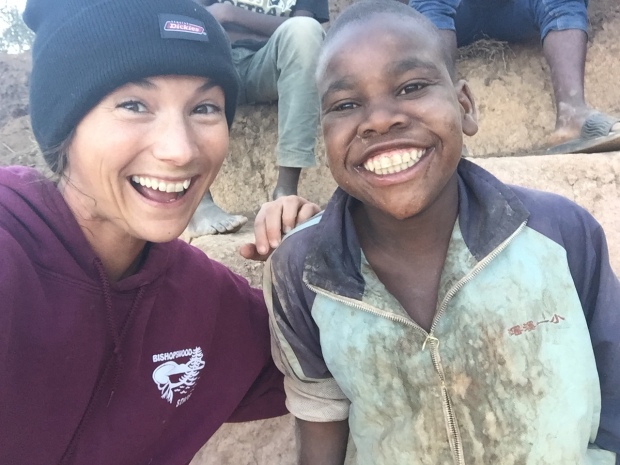
The children from the village were so excited and happy to see us. They live their lives unaware of what kinds of opportunities the world holds for them outside the village. A dutch owned NGO at Mambo Viewpoint is trying to change that.
So this hotel-turned-NGO has stepped in to make change. They are doing it in 5 ways: the most important being family planning, but also bringing in European doctors and mid-wives to train locals to better administer healthcare in the community. They are also working in entrepenuership: training local business men skills like bookkeeping and accounting.
The Mambo Viewpoint NGO is doing a lot of amazing things to help the population of this troubled area, but the most amazing and particularly unique thing is one that I got to participate in first-hand with our students: A circus that brings hope for a brighter future to the village children. I think we all could agree that it was the highlight of the field trip.
The story goes back to about 5 years ago, when a guest of the hotel- a Dutch man named Yanis- came traveling through these mountains as a tourist and noticed the same problems that I did. He decided to stay and do something about it. Recognizing that these children were left to a fate of staying in this town and into the same cycle of the generations before them,he came up with a bright and creative idea to help break that cycle.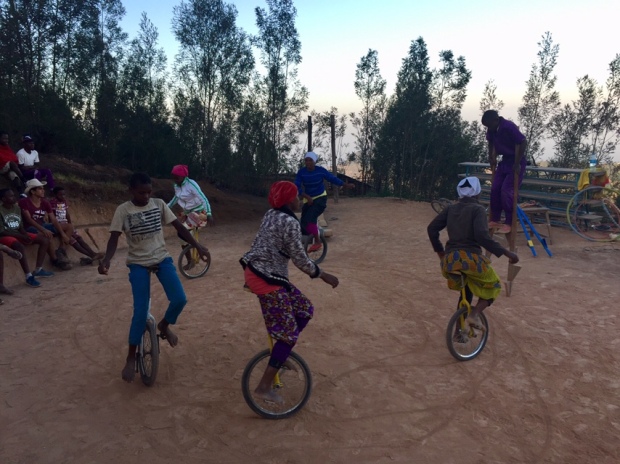
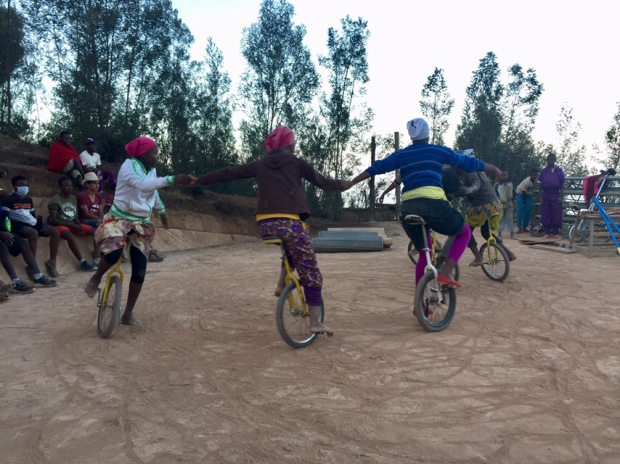
An imaginative way of “breaking the cycle” for these village children
He organized a circus club for the children come to after school where they can learn circus tricks to performs. They learn their different tricks, including riding a unicycle, walking on stilts, juggling and acrobatics. As the older children become masters of their tricks, they are assigned to teach the new, younger children that come into the club. They practice for their circus performances that they put on regularly for the guests of the Mambo Viewpoint Hotel. We were one such lucky group of guests- only we went one step further and got to participate ourselves!

I try my hand at stilts
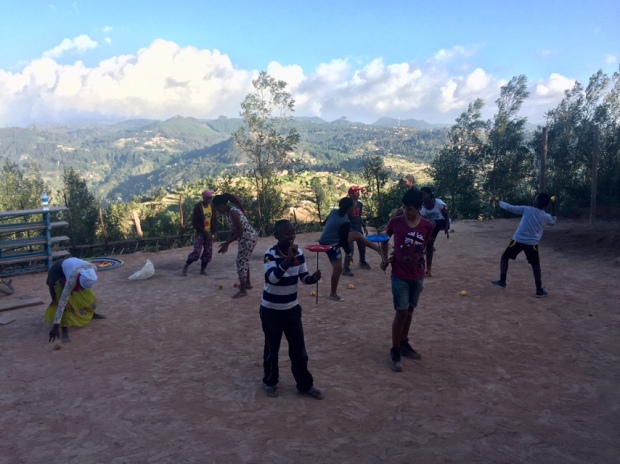
The village children teach our private-school students circus trips from the top of Mambo Viewpoint, with the beautiful Usambara Mountains as a backdrop
The students of the group that I was with are international, private school kids. Their experience growing up has been the other end of the spectrum from what the children we met in the villages have lived, one of great privilege and endless opportunity for growth. To have these village kids teaching us tricks was a humbling experience, to say the least, and one that moved every single one of us and will not be easily forgot. 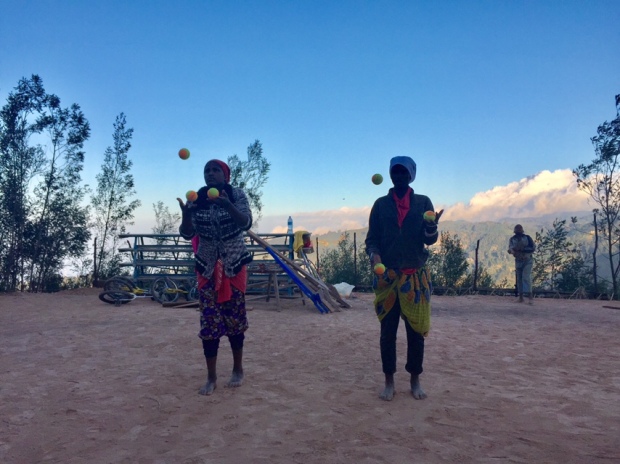
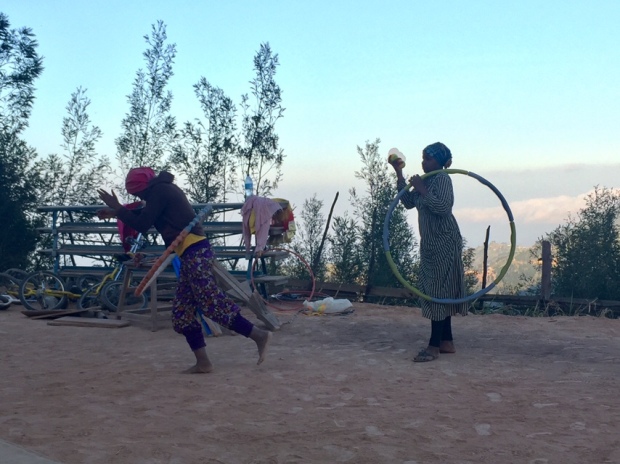
Another facet of this club that Yanis has planned for the village children that participate are excursions to bigger cities in Tanzania like Arusha, Tanzania, Zanzibar, and Moshi, so that they can see with their own eyes that there is life outside of the isolated villages that they come from and how it is different. This has inspired many of them to learn new skills and work towards a goal of one day being able to leave the village to study or to work- possibilities that they never knew existed to them before.
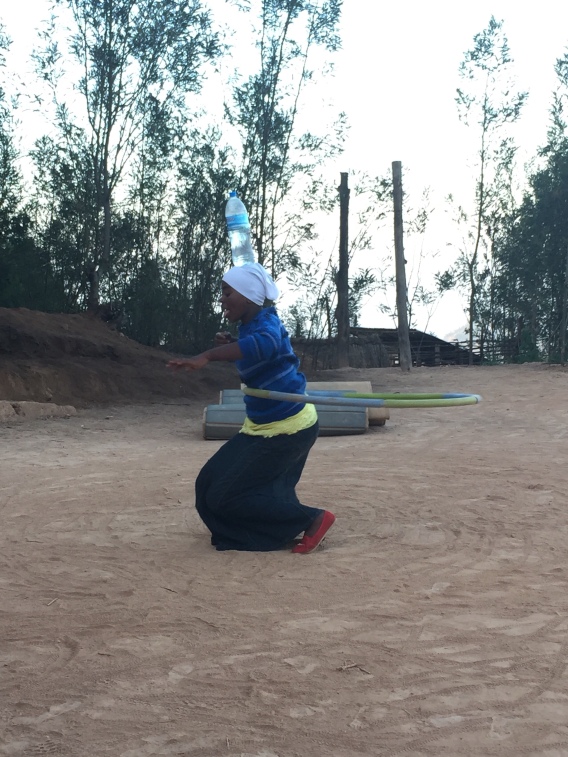
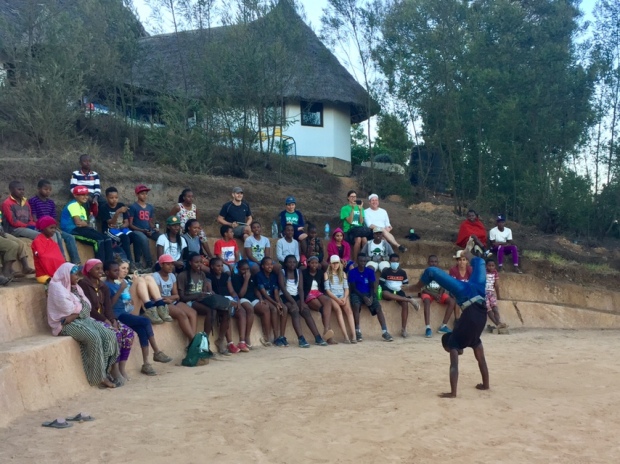
Despite the corruption, overpopulation, and all the visible problems in Africa that I witnessed when I was there, good things are happening, too. A lot of conscientious people from around the world are here trying to do something to help, like the team at Mambo Viewpoint: a dutch-owned NGO that started when some tourists with a social conscience decided to come back and do something to help rather than just pass through and carry on with their lives. The city of Arusha is filled with foreigners working for non-profit organizations that are trying to do the same thing, bring hope and help to a nation that is wrought with troubles. They have been an inspiration to me and have re-awakened my own dreams of service that have lived in me since I was a child. Mambo Viewpoint was born from a dream of service. I hope that one day, I can return to Africa to help, and not just to observe, and finally bring those dreams of service to life.







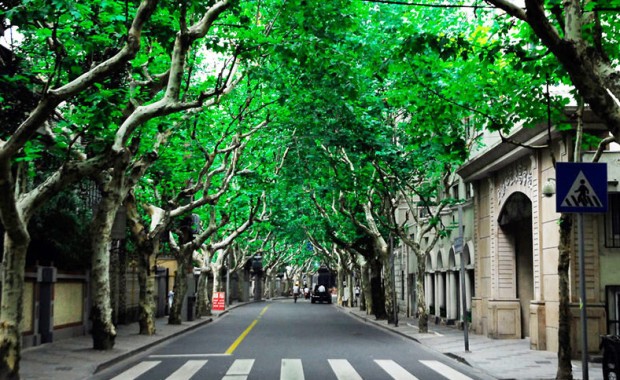


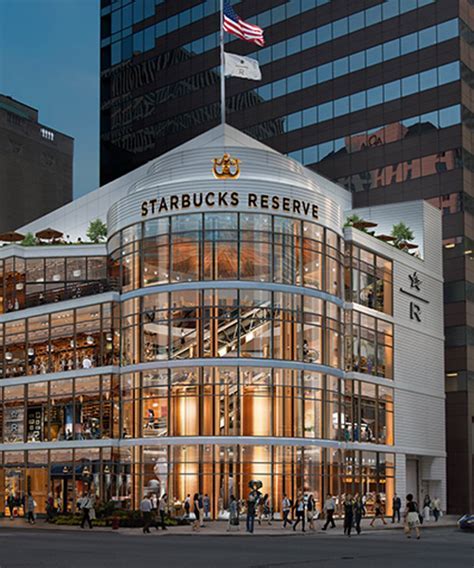



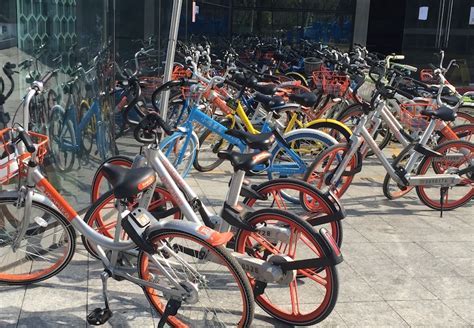
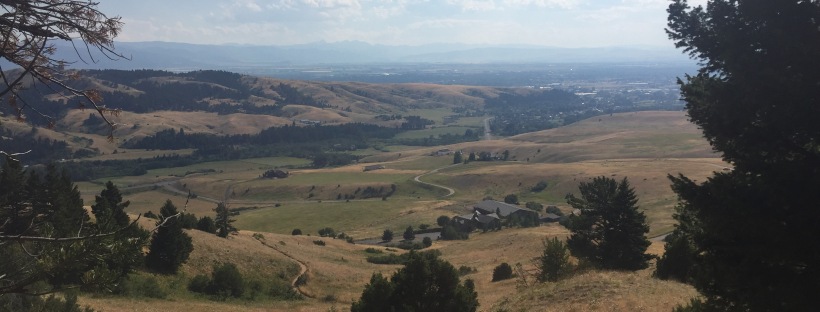
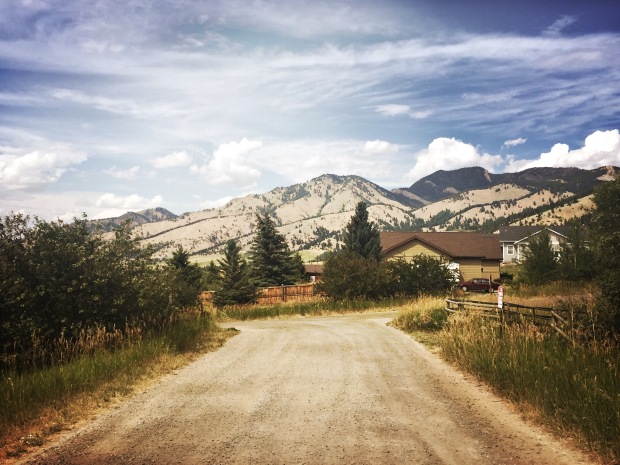 I could not have asked for a more beautiful backdrop to marvel at as I bumped along a gravel road heading into the Bridger Mountains for an afternoon jaunt in the woods. It’s one of those days when it feels like Montana is purposely putting on a show for us, the citizens of Bozeman, in all it’s Rocky Mountain glory. The sun beams down forever over the landscape- so puzzlingly dry and verdant at the same time- creating it’s own unique color pallet of dusty yellows, lilacs, sages, and, of course, the admirable blue atmosphere above it all that gave Big Sky country it’s name.
I could not have asked for a more beautiful backdrop to marvel at as I bumped along a gravel road heading into the Bridger Mountains for an afternoon jaunt in the woods. It’s one of those days when it feels like Montana is purposely putting on a show for us, the citizens of Bozeman, in all it’s Rocky Mountain glory. The sun beams down forever over the landscape- so puzzlingly dry and verdant at the same time- creating it’s own unique color pallet of dusty yellows, lilacs, sages, and, of course, the admirable blue atmosphere above it all that gave Big Sky country it’s name.